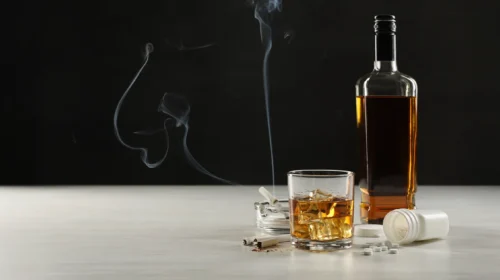Language matters. The right (or wrong) words can completely transform a person’s day. When that person has just entered recovery from drug or alcohol addiction, these words can be especially uplifting or destabilizing. Every interaction, however brief, can leave a lasting impression of how someone thinks the world sees them. Friends, family, colleagues, and even passing acquaintances of people in recovery may have more power than they realize in helping them feel supported or unworthy of a fresh start. With that in mind, here are some helpful tips for talking to someone in recovery.
Let Them Do Most of the Talking at First
While recovery is nothing to be ashamed of, sober people are often uncomfortable talking about their active substance use’s less dignified and flattering moments. By allowing them to share as much or as little as they want, you can get helpful cues about their comfort level and candor about their past.
Be Conscious of Body Language
A picture is worth a thousand words, and a gesture can be a million. Try not to wince, shake your head, grimace, or gasp in a judgmental way. While some of this information may be alarming, if someone trusts you enough to tell you, it’s because they think you can handle it. They expect and deserve your support.
Leave the Past Where It Is
This can be a tough one. Active substance abuse creates all manner of problems in family, social, professional, and romantic relationships. It can be hard to separate the person who’s talking to you today from the way they were talking to you yesterday. You’re certainly entitled to your feelings but keep in mind that they’re trying to make a fresh start.
Watch Your Words
Sometimes knowing what not to say is more important than knowing what to say. Avoid words like “failure”, “criminal”, “lost cause” and other more profane pejoratives. These words are LOADED with judgment and can be emotionally traumatic to someone trying to put their past behind them. Even the term “addict” can be objectionable.
Do Some Homework
Educate yourself on the disease of addiction and what people often go through when they’re new to recovery. Understanding these nuances helps in being empathetic and avoiding harmful assumptions. For instance, suggesting to someone in recovery from drug addiction that they can still consume alcohol because it wasn’t their primary substance of abuse is both insensitive and potentially harmful. Such statements overlook the multifaceted nature of addiction and can jeopardize recovery.
Other Tips for Talking to A Person in Recovery
Remember to be positive and affirming when talking to someone in recovery, but don’t be afraid to give honest feedback. Qualify any potentially difficult feedback with disclaimers that you’re not judging. Let them know you’re there for them and that they have your full support. People who are new to recovery want to feel normal and stable again; one of the most immediate ways to feel this way is by relating to others not as an “addict”, “problem”, or “failure” but as a human being.
Loved ones and friends of people in recovery can often mean the difference between ongoing sobriety and relapse, and this starts with how we treat and talk to the person. If you or someone you care about is struggling with alcohol or drug addiction, Recovery Unplugged is ready to help you reclaim your life. Contact our staff today to start your treatment.

























